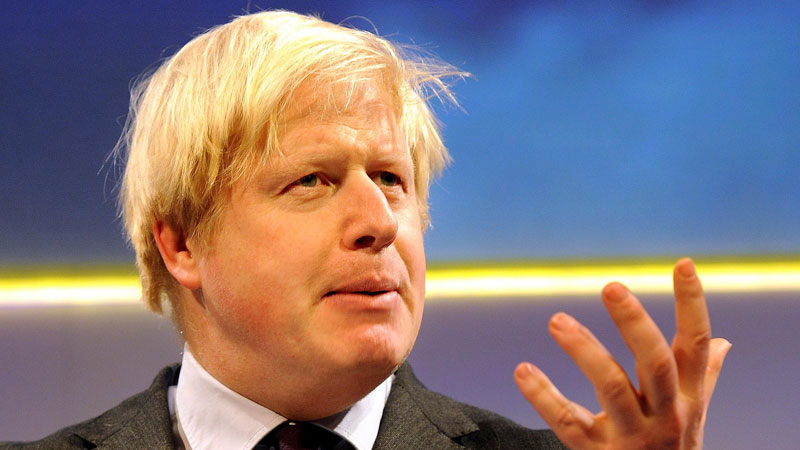- UK Defends £200m Aid Budget for Nigeria
The United Kingdom’s Department for International Development has defended its £200m ($258m) aid budget for Nigeria, even as the Federal Government pledged to work with the British government to stimulate and attract more direct private sector investments into the country.
The UK Foreign Secretary, Boris Johnson, and the Secretary of State for International Development, Priti Patel, jointly announced the £200m in aid over the next four years, during a visit to the country on Wednesday.
According to a report by The Guardian of the UK, the projected average annual funding of £50m falls short of the £100m pledged to Nigeria for 2017.
Patel and Johnson also met Vice-President Yemi Osinbajo on Thursday to discuss security, trade, British investment and the fight against corruption.
Johnson described Nigeria as an “incredible country and powerhouse of the African economy”. The foreign secretary also formally opened what he described as “this wonderful, new, super, colossal British high commission” in Nigeria’s capital, Abuja.
But the DfID played down the suggestion that the annual £50m pledge amounted to halving the annual budget, claiming the additional funding was part of a £300m five-year package.
Patel said, “The first year started with a higher amount and now we’ve allocated more money for years two to five. There is also the option to top up, if necessary. We don’t want to over-allocate in case it’s not needed because the idea is to restore the area – so less aid is required.”
Johnson and Patel visited North-East Nigeria to see some of the areas worst hit by the disruption and violence caused by the Islamist terrorist group, Boko Haram.
Quoting the International Organisation for Migration, the report said as many as 1.9 million people had been internally displaced due to Boko Haram activities.
Patel said, “We massively stepped up funding in response to the crisis in 2016 and 2017 and rather than keep giving the same amount, we are letting it reduce because we expect the need to become less acute. This year, the money will be higher than subsequent years.”
Meanwhile, the Minister of Budget and National Planning, Senator Udo Udoma, told the delegation that the Federal Government was intensifying efforts to improve the ease of doing business in the country and would welcome more foreign investments.
Acknowledging the various interventions by the British government in aid of the country’s development challenges, the minister said that although Nigeria would appreciate more foreign aid from the British government, it would be looking more in the area of investments from companies in that country coming into Nigeria.
He explained the government’s efforts towards ensuring the ease of doing business and particularly mentioned the creation of industrial hubs in the six geo-political zones of the country that would have all the basic infrastructural facilities required for manufacturing to thrive smoothly.
The British government, he said, could help in encouraging manufacturers in the United Kingdom to outsource some of their productions to Nigeria and take advantage of the special economic zones.
The minister said that the Federal Government was committed to creating a successful economy, pointing out that the Economic Recovery and Growth Plan launched early this year was meant to serve as a vehicle to drive the government’s diversification policy.
Udoma said the Federal Government had constituted an inter-ministerial task force under the chairmanship of the Minister of State for Budget and National Planning to properly handle and coordinate humanitarian assistance efforts to the North-East.
This, he noted, was to ensure proper delivery and effective utilisation of funds and materials.


 Forex2 weeks ago
Forex2 weeks ago


 Naira2 weeks ago
Naira2 weeks ago
 Naira4 weeks ago
Naira4 weeks ago
 Company News4 weeks ago
Company News4 weeks ago
 Billionaire Watch1 week ago
Billionaire Watch1 week ago




 Naira2 weeks ago
Naira2 weeks ago




 Naira4 weeks ago
Naira4 weeks ago




 Naira1 week ago
Naira1 week ago





















